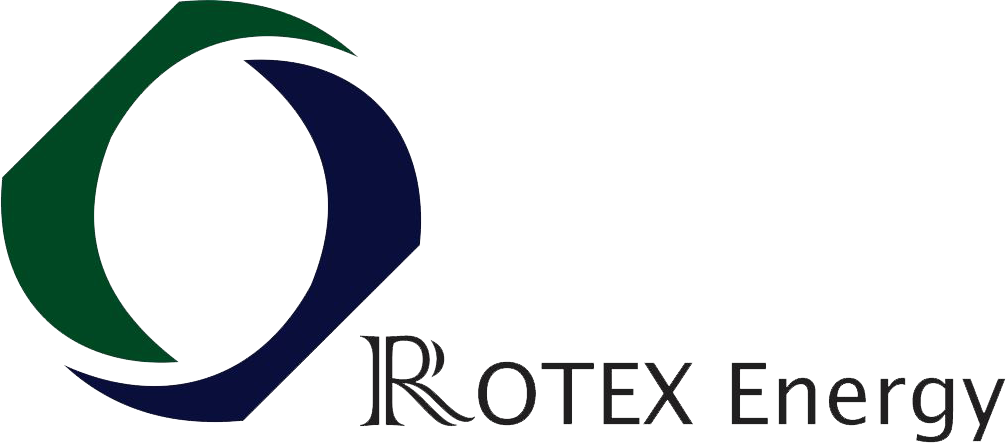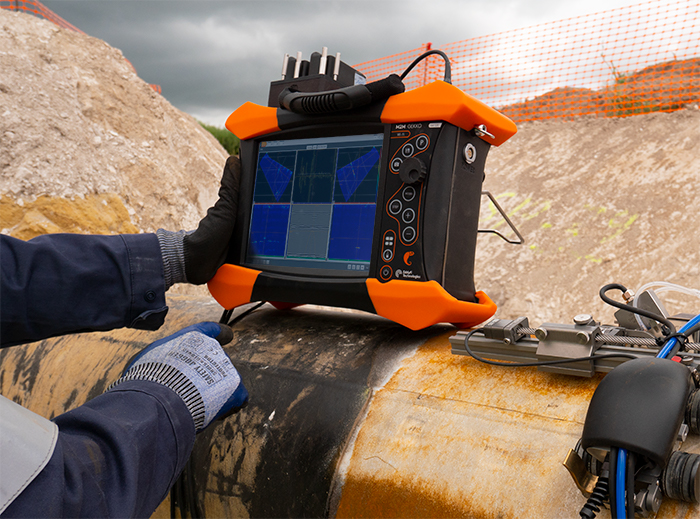Ultrasonic Thickness Measurement (UTM)
Ultrasonic thickness measurement (UTM) is a non-destructive testing method used to inspect the metal thickness of ship hulls, piping and structural steel.
Thickness measuring is essential across many industries to monitor corrosion, erosion and damage. Ultrasonic thickness measurement (UTM) is commonly used and the method can be applied to a wide range of structures and components that includes ship hulls, piping, pressure vessels and structural steel.
Detection of metal loss caused by corrosion, erosion or damage is vital to ensure the continued safety and operation of the inspected item/structure. It can also help determine if repair work or replacement is needed or if the item/structure should be retired. Ultrasonic thickness measurement data gives customers the necessary information required to determine if the tested item has the adequate metal thickness for which it was designed.
An ultrasonic thickness gauge works by precisely generated by a small probe called an ultrasonic transducer to travel through a test piece and reflect back from the inside surface or far wall. From this measurement, the thickness of the test piece is calculated and displayed on a digital screen.
Magnetic Particle Testing (MPT)
Magnetic particle inspection is often carried out to help determine an item’s fitness for use or conformity. This quick and relatively easy to apply technique is widely used in all industry sectors including aerospace, automotive, petrochemical, structural steel,and power generation to inspect a variety of products and equipment such as engine, suspension and braking system components, castings, forgings and weldments.
The method can detect surface or near-surface flaws such as cracks, laps, seams and inclusions in ferromagnetic materials such as iron and steel. One of the main advantages of magnetic particle inspection is that it can give an immediate indication of defects
Dye Penetrant Testing (DPT)
This non-destructive testing technique, also known as liquid penetrant inspection (LPI), is a cost-effective method used to locate surface breaking flaws such as cracks, porosity, laps, seams and other surface discontinuities. Dye penetrant inspection can be applied to both ferrous and non-ferrous materials and all non-porous materials (metals, plastics or ceramics).
It is commonly used to detect defects in castings, forgings and weldments. Rotex works with all industry sectors including aerospace, power generation, petrochemical and oil and gas, and we can provide dye penetrant inspection on-site at our clients.
Pipe and Vessel Inspection Services (API)
We at Rotex Energy possess extensive experience in pipeline inspections, asset integrity and production services, and have been the quality service provider for many of the largest onshore and offshore projects around the world. Our highly qualified crews of inspectors are available in the closest proximity to major pipe mills worldwide to provide cost-effective solutions for all types of pipeline projects.
We provide you with valuable inspection insights during the procurement, manufacturing, construction, commissioning and operation/maintenance phases.
As the name implies, rope access uses ropes and climbing techniques and is commonly used by industrial clients for inspection and maintenance. It is a cost-effective alternative to scaffolding and mechanical platforms.
There are many advantages to industrial rope access including rapid mobilisation, minimal set-up time and limited disruption to operation or service.
Rotex Energy specialises in providing rope access solutions to the oil and gas (onshore and offshore), refining and construction industries.
Our rope access services include:
- Non-destructive testing
- PAUT/TOFD testing
- Ultrasonic thickness measurement (Hull Surveys in Tanks)
- Magnetic particle inspection
- Eddy current testing
- Dye penetrant inspection
- Lifting and Slinging Services (Rigging Operations)
- Painting and Coating
Our personnel are highly experienced and qualified in their fields of technical expertise such as non-destructive testing. After performing rope access inspection or maintenance work, our team will provide written reports documenting the findings and results.
We are currently working to be members of International Rope Access Association (IRATA) and our multi disciplinary rope access team is certified by the organisation and trained in accordance with Safe Practices for Rope Access Work and Certification Requirements for Rope Access Work. The team is also trained to meet offshore and onshore clients’ requirements including operator Safety Environmental Management System (SEMS) requirement.
Rotex Energy rope access services support your requirements for ensuring safety and reliability in your operation or service, and we can carry out full service Total Quality Assurance solutions anywhere access is needed. Our efficient, safe and quality rope access service gives you the confidence that you are operating to industry standards and have a cost-effective, flexible solution for inspection and maintenance at higher elevations.

